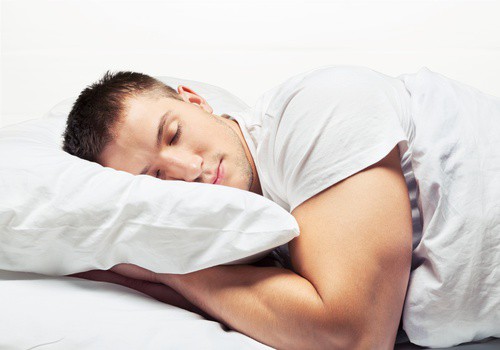Take note of these five reasons why catching more quality Z's can make you a stronger, better runner. Now go sleep on it… – BY SEAN FALCONER
In the modern, ever-busy world surrounded by technology and distractions, getting a full night’s sleep is a rarity for many people, due to the demands of ever-busier lifestyles, but go ask top runners about sleep and most will tell you they try to get a solid nine to 10 hours a night whenever possible. This is because they know that it’s during sleep that your body recovers from hard training and builds you into a better runner. Now, sleep needs vary from one person to the next, but here’s why you should try to get more sleep if you want to perform better on the run.
1 IN FOR REPAIRS:
Sleep is when your body repairs and regenerates damaged tissue from a workout, and builds bone and muscle to be ready for the next workout. Therefore, distance runners especially need sleep and repair time to recover from training.
Research has proven that increased sleeping time can improve athletic performance, and subjects who slept more saw their speed improve significantly, and said they felt their training improved after six weeks of lengthened sleep. Also, research suggests that reducing an accumulated sleep-debt can be beneficial for athletes at all levels, and sleep should be a high priority in an athlete’s daily planning and training programmes.
2 GROWTH TIME:
During the deeper stages of sleep, human growth hormone (HGH) is released by the pituitary gland and released into the bloodstream to rebuild damaged tissue and build stronger muscles. It also helps convert fat to fuel, and keeps our bones strong.
If you don’t get enough sleep, you produce less HGH, and it becomes harder for your body to recover from workouts. Too little sleep also leads to an increase in cortisol, which contributes to slower recovery times.
3 TAKING ON WATER:
During sleep, the kidneys balance water, sodium and electrolytes, so if you are already dehydrated from sweating, especially in the hotter months, sleep provides vital time for water re-absorption.
So not only do you need to drink enough water to replenish lost liquids, you also need to get enough sleep so that your body can absorb it properly, or you may suffer muscle pain and poor performance when running.
4 KEEPING TRIM:
When you don’t get enough sleep, your appetite-related hormones can be thrown out of sync. Less sleep leads to more ghrelin, which makes you hungry, and less leptin, which tells you that you’re full, so regularly sleeping a full night helps keep your hunger signals in check.
Added to this, if you’re not sleeping enough, your body won’t store carbs properly, leading to less glycogen stores, and you may hit the wall sooner in your next race.
5 IMPROVED FOCUS:
It takes a few hours after you fall asleep to reach deep, quality sleep, usually into the seventh hour, so getting enough sleep helps you tune into your body and improve your concentration, which can help you greatly not only in work or studies, but also when strategising your race.
GET THE ESSENTIALS:
• Determine your sleep needs and meet that quota every night.
• Establish a regular sleep schedule by going to bed and getting up at the same time every day. With an ever-changing sleep-wake schedule, your body never knows when it’s time to shut down.
• Get one long block of continuous sleep at night. Power naps are a last resort if you have to make up lost sleep – snooze for 10 to 15 minutes, no longer, or you might become groggy.


